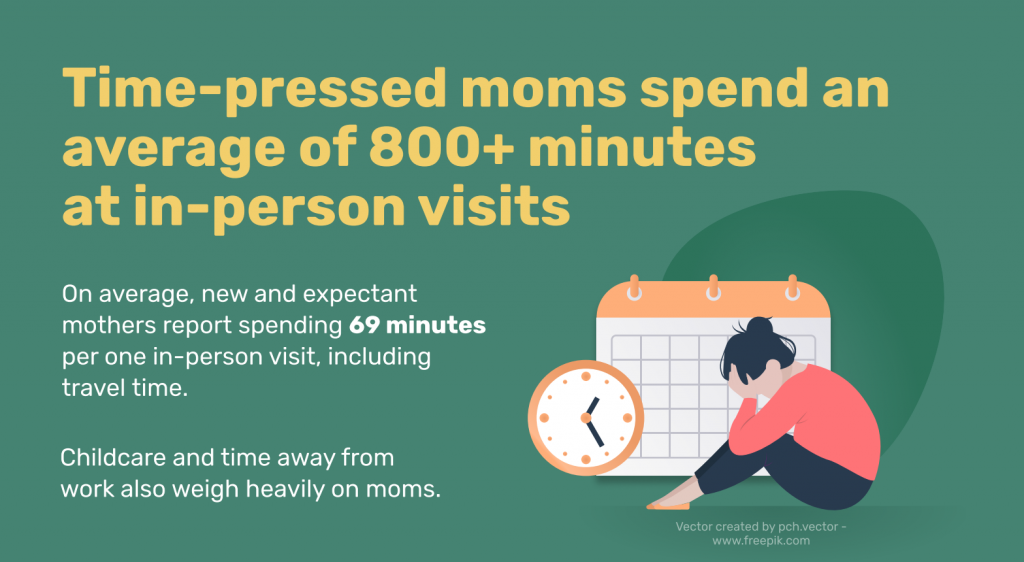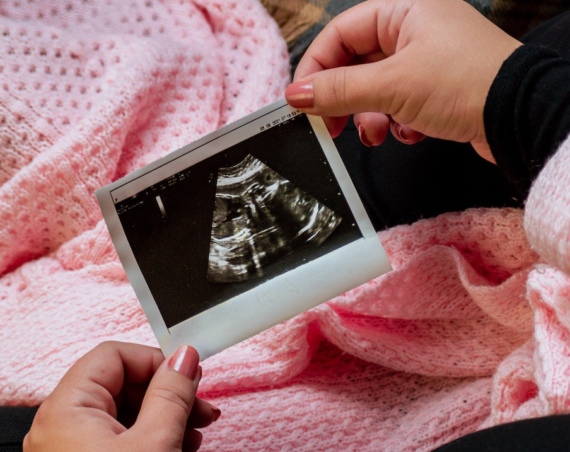
A recent survey conducted by Nuvo, the company behind INVU, an FDA-cleared, prescription-initiated, remote pregnancy monitoring platform, found that multiple factors have left moms-to-be searching for new remote pregnancy monitoring solutions. The survey, in partnership with Wakefield Reserach, examined the recent experiences of 500 new or expectant mothers and focused on the existing challenges of in-person prenatal care appointments, such as the necessary time commitment, childcare needs and time spent away from work, along with serious concerns about COVID-19 exposure. It also revealed a new trend in the use of telehealth and remote monitoring options during pregnancy.
Key Survey Findings:
- The average woman sets aside more than one hour (69 minutes) for each in-person prenatal visit, spending a total of over 800 minutes at in-person prenatal visits during her pregnancy.
- 71 percent of new and expectant moms surveyed reported being “really worried” about exposure to COVID-19 as a direct result of in-person prenatal visits.
- 80 percent of new and expectant mothers of color, who are disproportionately affected by the pandemic, reported being “very worried” about exposure to COVID-19 during prenatal visits.
- 79 percent of women pregnant during the COVID-19 pandemic have had as many as seven prenatal telehealth visits with their physician—however, anecdotal evidence suggests these visits were often lacking some of the vital measurements taken during in-person visits.
- 77 percent of new and expectant mothers would prefer to do some of their prenatal visits remotely as long as their doctor could provide the same level of care.
- 93 percent of women surveyed feel that hearing from their doctor that their pregnancy is going well is the most reassuring part of their prenatal visits.
Beyond the risk of spending excess time in doctors’ offices during COVID-19, the majority of new and expectant moms dedicate an average of 800+ minutes at in-person prenatal visits. The time away from work, need for childcare, etc. is taxing to moms and can add up to huge amounts of PTO or maternity leave being used up before the baby is even born.
In the U.S., pregnancy medical care is a $10 billion industry, with four million births each year. Remote care is not going away when the pandemic ends. With telehealth on the rise, it’s important that women who are considering tracking their pregnancies at home know what to look for. The tips below from Dr. Elizabeth Cherot M.D. can offer some initial guidance:
- While reliable options for remote pregnancy monitoring do exist, they currently lack critical fetal and maternal viability checks, which is why it’s important to talk to your doctor about comprehensive remote monitoring solutions that may be available, such as the INVU platform, which monitors both maternal and fetal heart rates.
- Ask your physician which types/brands of peripheral devices he or she recommends to help you monitor and record your vitals regularly and safely (e.g., blood pressure cuff, etc.)
- Based on what we know at this time, pregnant women might be at an increased risk for severe illness from COVID-19 compared to non-pregnant women. Additionally, pregnant people with COVID-19 may be at increased risk for other adverse outcomes, such as preterm birth. If you think you have been exposed to COVID-19, don’t wait for it to progress—contact your doctor within 24 hours or as soon as you first show symptoms. Be diligent by taking precautions such as wearing a mask and practicing social distancing.




